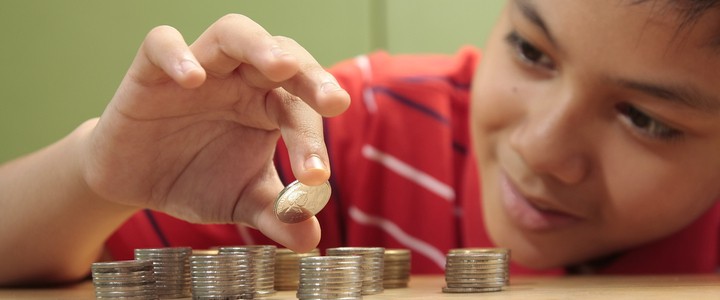
How do you choose a suitable savings strategy for your children or grandchildren? You may want to save for their future education or towards a deposit to help them eventually get onto the property ladder. You might have already started paying into a Junior ISA or Help to Buy ISA for them – but how does this affect other savings strategies you’re considering? We’ve outlined a few things to think about below, which could give you a better return on your money.
Do children pay tax?
Yes, unfortunately, they do – however, most children do not earn any income so they could save up to £17,000 per year without any tax implications (this combines £1,000 from the personal savings allowance, a starting savings rate of £5,000, and the personal allowance of £11,000 before any tax needs to be paid). If they are earning in any way, it starts to get complicated – if they earn more than £11,000 per year, for every pound earned, they would lose a pound of savings allowance. The new personal savings allowance launched last April (2016), allows taxpayers to save their first £1,000 tax-free.
As a parent, if you are adding to a large pot of savings for your child, which amounts to more than £100 of interest per year, then savings will be taxed at the parent’s tax rate. This is to prevent parents from earning ‘extra income’ and then stating this is solely for their child’s savings.
Paying into a Junior ISA or Child Trust Fund
If your children are likely to have a high level of savings once they reach adulthood, then a tax-free Junior ISA is well worth considering. On their 18th birthday, they can convert the Junior ISA into a Cash ISA and use this money to buy a car, or towards a home or higher education. What’s more, the money will be protected as it is locked away until they reach 18 years of age.
A Child Trust Fund is no longer available to newborns and is considered ‘defunct’; the fund was set up for children born between 1 September 2002 and 2 January 2011. You can still pay into this type of fund – up to £4,128 per year from this April (2017) – however, you might need to consider converting this into a Junior ISA. Like the Junior ISA, cash is locked away until your child turns 18, but the interest rates are likely to be a lot lower.
Helping your child to save
In today’s often volatile global economy, helping your child to save for themselves is vital. Teaching ‘good savings practices’ will enable your child to understand not only the true value of money, but it will help them prepare for adulthood and large spends in the future.
• Start them saving pennies in their piggy bank, then transfer into a bank account and explain, in basic terms, how interest works so they can begin to see how sensible saving can bring them albeit a small return on their money.
• Allow your children to get involved in their savings accounts – show them the interest they are generating on whichever account you have set up for them. As the interest grows, they will start to understand basic savings strategies, which should encourage them not to spend too wilfully.
• Show your child different account options and involve them in the decision-making process when it comes to choosing an account. This will give them a starter guide to saving and help to prepare them for a securer financial start as they approach adulthood.
Helping your family get onto the property ladder
If your children (or grandchildren) are grown up and looking to buy their first property, the Help to Buy ISA is an excellent way to help them save for a mortgage deposit. The tax-free interest could be as much as 2.27%. On completion (after exchanging contracts), there is a Help to Buy cash bonus of 25%, which means if they needed a £10,000 deposit, they would receive £2,000. This is only available once they have become the legal owners of the property. What’s more, although they can take money out of the Help to Buy ISA, they would obviously lose the cash bonus if they decided not to use the savings for buying a home.
If you would like to discuss suitable saving strategies for your children, please talk to one of our financial planners – get in touch and we will be only too happy to advise.

